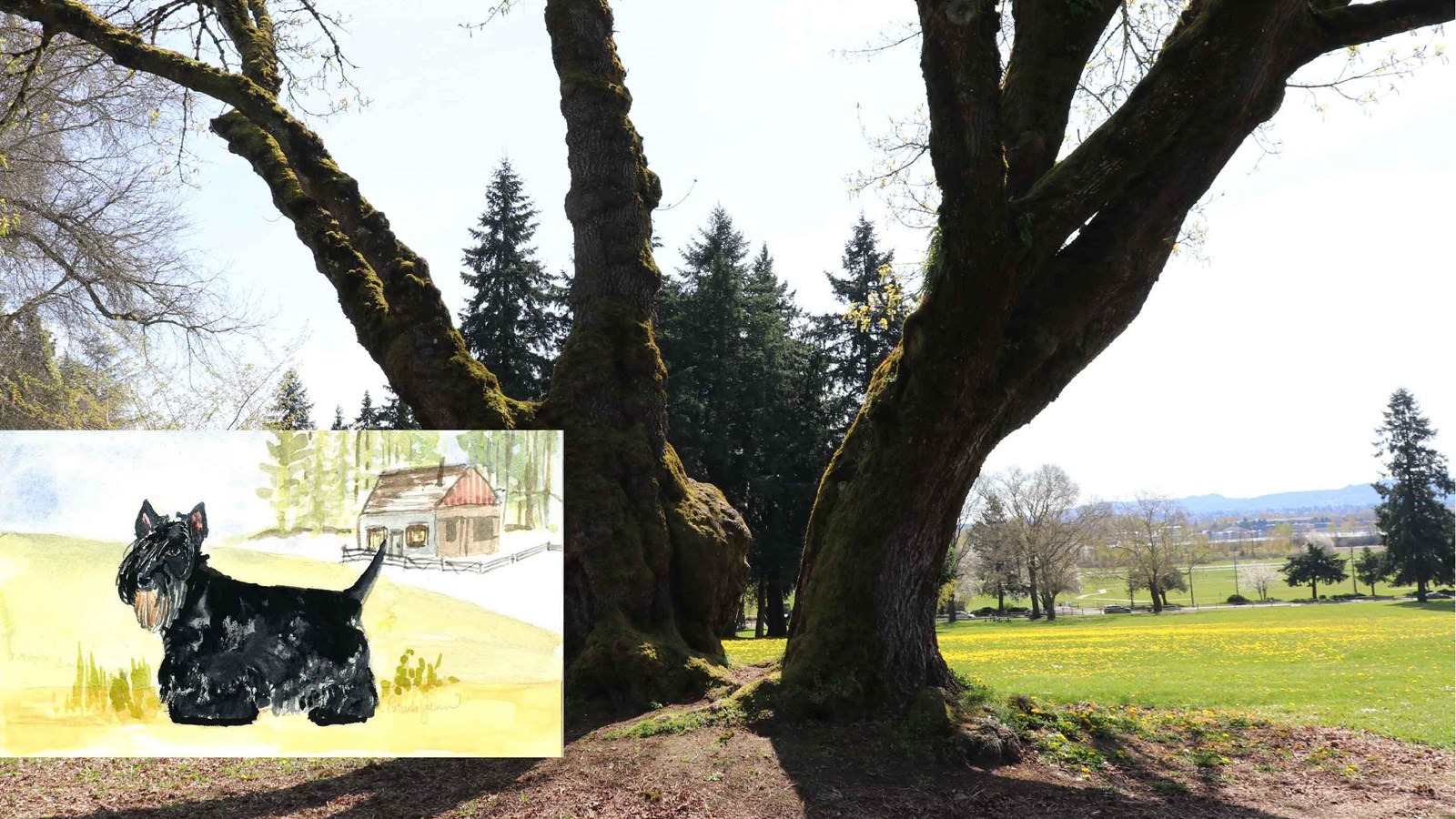Last updated: May 2, 2025
Place
BARK Ranger Stop 2: David Douglas and Billy

NPS Photo, artwork by Pamela Gunn
Quick Facts
Amenities
2 listed
Parking - Auto, Pets Allowed
David Douglas, a Scottish botanist and explorer, arrived at Fort Vancouver in 1825 as part of his botanical expedition to the Pacific Northwest. Douglas's terrier, Billy, was more than just a faithful companion during his botanical expeditions across North America; he was an integral part of Douglas’s adventures.
Accompanying Douglas on treacherous journeys through uncharted territories, Billy proved to be a steadfast and reliable partner. The dog not only offered companionship and comfort during the long and often solitary travels but also played a practical role in carrying supplies and keeping away pests.
Tragically, Billy’s loyalty became even more profound following Douglas’s death in 1834 on the island of Hawai’i. After Douglas was killed by a bull while collecting specimens, Billy stayed by his master’s side. The dog’s distress and refusal to leave the site ultimately led locals to discover Douglas’s body. Billy’s loyalty stands as a testament to the powerful connection between humans and their animal companions.
Click here to learn more about David Douglas at Fort Vancouver.
Accompanying Douglas on treacherous journeys through uncharted territories, Billy proved to be a steadfast and reliable partner. The dog not only offered companionship and comfort during the long and often solitary travels but also played a practical role in carrying supplies and keeping away pests.
Tragically, Billy’s loyalty became even more profound following Douglas’s death in 1834 on the island of Hawai’i. After Douglas was killed by a bull while collecting specimens, Billy stayed by his master’s side. The dog’s distress and refusal to leave the site ultimately led locals to discover Douglas’s body. Billy’s loyalty stands as a testament to the powerful connection between humans and their animal companions.
Click here to learn more about David Douglas at Fort Vancouver.
